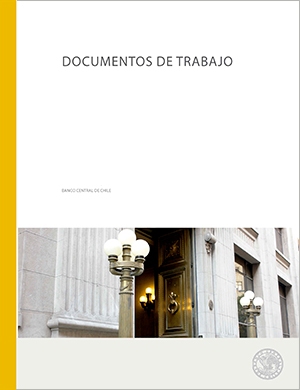Working Papers N° 892: Labor Earnings Dispersion in Chile: Decomposition, Dynamics and the Role of Firms
Publications
Working Papers N° 892: Labor Earnings Dispersion in Chile: Decomposition, Dynamics and the Role of Firms
Autor: Rosario Aldunate , Gabriela Contreras , Matías Tapia
Description
We use a matched employer-employee census of formal employment in Chile to characterize the distribution of formal labor earnings between 2005 and 2016. We decompose the overall dispersion in earnings across workers into between and within-firm components, and then use a two-way fixed effect model with no complementarities for individual earnings (the AKM model) to compare the contributions of firm and worker heterogeneity toward changes in dispersion. First, we find a decline in the dispersion of labor earnings throughout the decade, which is driven almost completely by a reduction in the variance of average earnings between firms. The dispersion of earnings within firms, which explain more than half of the overall dispersion and correlates strongly with productivity at the firm level, did not change. Second, AKM estimates show that systematic differences across workers explain the bulk of earning differences, and that the reduction in worker heterogeneity was the main driver towards a more compact earnings distribution, an effect that was complemented by weaker sorting patterns. Finally, although our results suggest that the AKM model provides a good first-order approximation to the labor earnings determination process, we use an alternative specification that allows for worker-firm complementarities. This estimation suggests a stronger role for sorting and an even weaker role for firms in explaining labor earnings differences in Chile.
Working Papers N° 892: Labor Earnings Dispersion in Chile: Decomposition, Dynamics and the Role of Firms
Boxes and graphics

